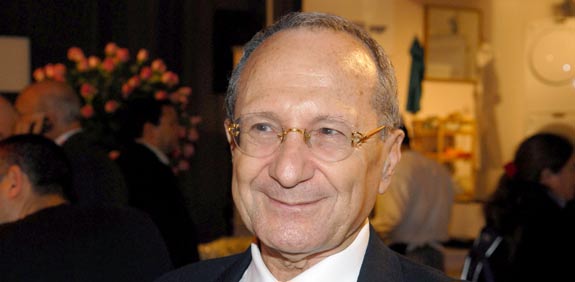LE PLUS. De Daniel Rouach. Fondé en 1948 dans un petit atelier de Jaffa, Keter est devenu, grâce à une innovation forcenée, le plus grand fabricant de meubles d’intérieur et de jardin en résine du monde.
Ses produits vont de l’abri de jardin aux armoires de salle de bain, en passant par des jeux d’extérieur pour les enfants. Keter a construit plus de 30 usines en Israël, en Europe et aux Etats-Unis.
Ma première rencontre avec Sami Sagol a eu lieu dans son QG « spécial » de sa firme. En effet son bureau se trouve littéralement au centre de son « Innovation et Creative centre ».
Des équipes de jeunes créatifs israéliens développent des produits dans une sorte de « Lab » ouvert. Samy Sagol vit au coeur de ce centre et se trouve donc en interaction complète avec des équipes de créatifs. Dans son bureau un énorme écran digital branché sur le cours de la bourse de Tel-Aviv, Londres, Wall-Street à New-York.
Il y a huit ans, Sami Sagol (78 ans), ex-proprétaire de Keter (Chiffre d’affaires annuel de +1 milliard de dollars) et ex-Président de la CCIIF à Tel Aviv, avait trouvé un acheteur pour Keter Plastic. Le prix de vente de sa société était de 1,5 Milliard de $. L’acheteur était BC Partners
Samy Sagol avait reçu un trophée de la Chambre de Commerce France-Israël, pour l’acquisition de la société française ALLIBERT.
ALLIBERT produit une grande diversité de boîtes et malles de rangement pratiques, des poubelles, des paniers à linge, des seaux, des bassines, des accessoires de cuisine et des rangements à tiroirs.
Sami Sagol avait été également honoré du Prix d’Economie Hugo Ramniceanu. Le Prix d’Economie récompense les innovations dans les domaines de l’économie, de la technologie et de la recherche et développement en Israël.
Le choix du prix s’était porté sur Sami Sagol pour “sa contribution au progrès industriel et économique d’Israël; pour son soutien aux initiatives culturelles et éducatives communautaires, pour son aide financière aux sociétés israéliennes ; pour ses opérations publiques en faveur des enfants, adolescents et étudiants et pour son dévouement et son implication en tant que Président–Directeur–Général du Groupe Keter Plastic qu’il a transformé d’une société locale de biens de consommation en firme internationale.”
LE PLUS.






Laisser un commentaire